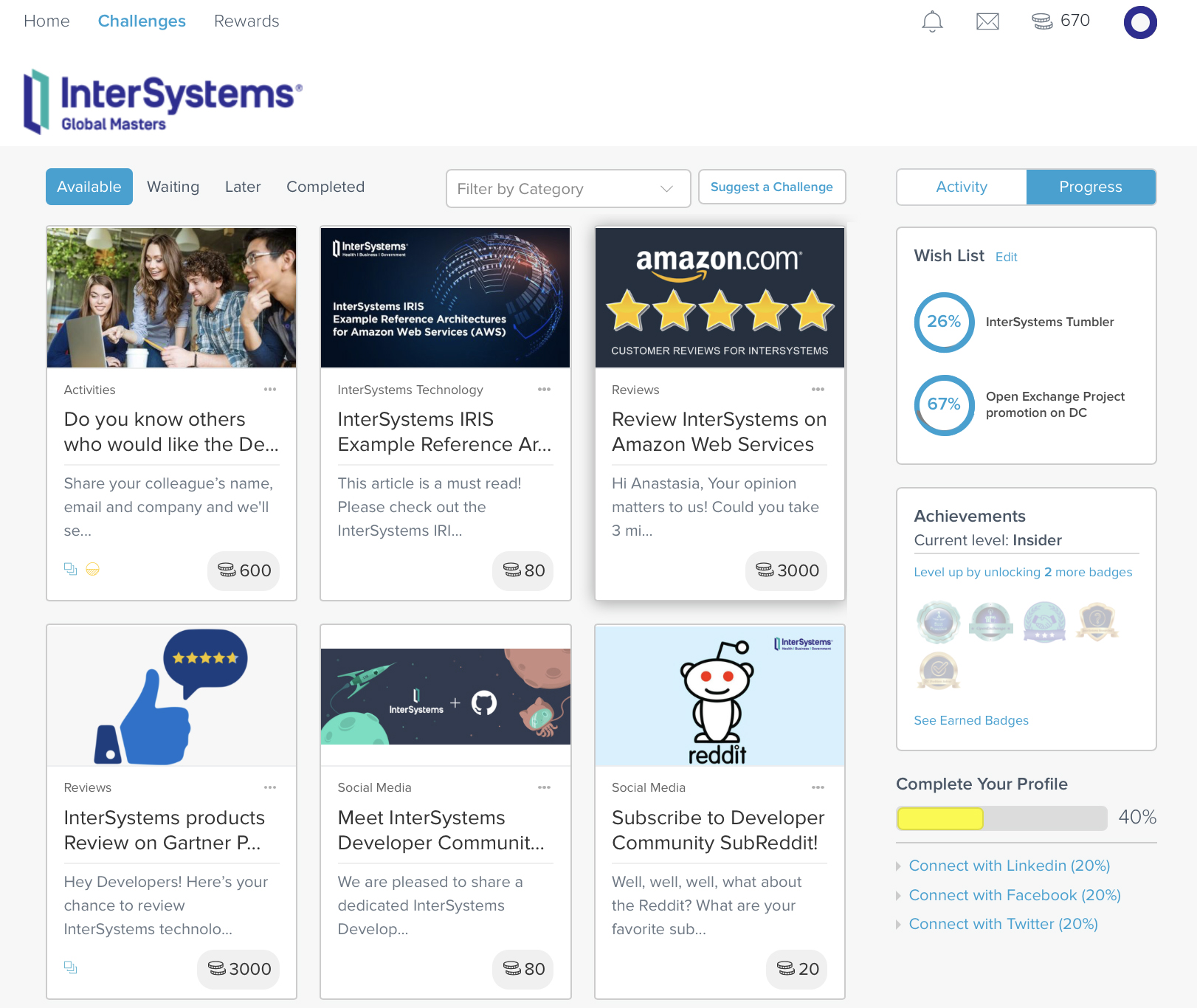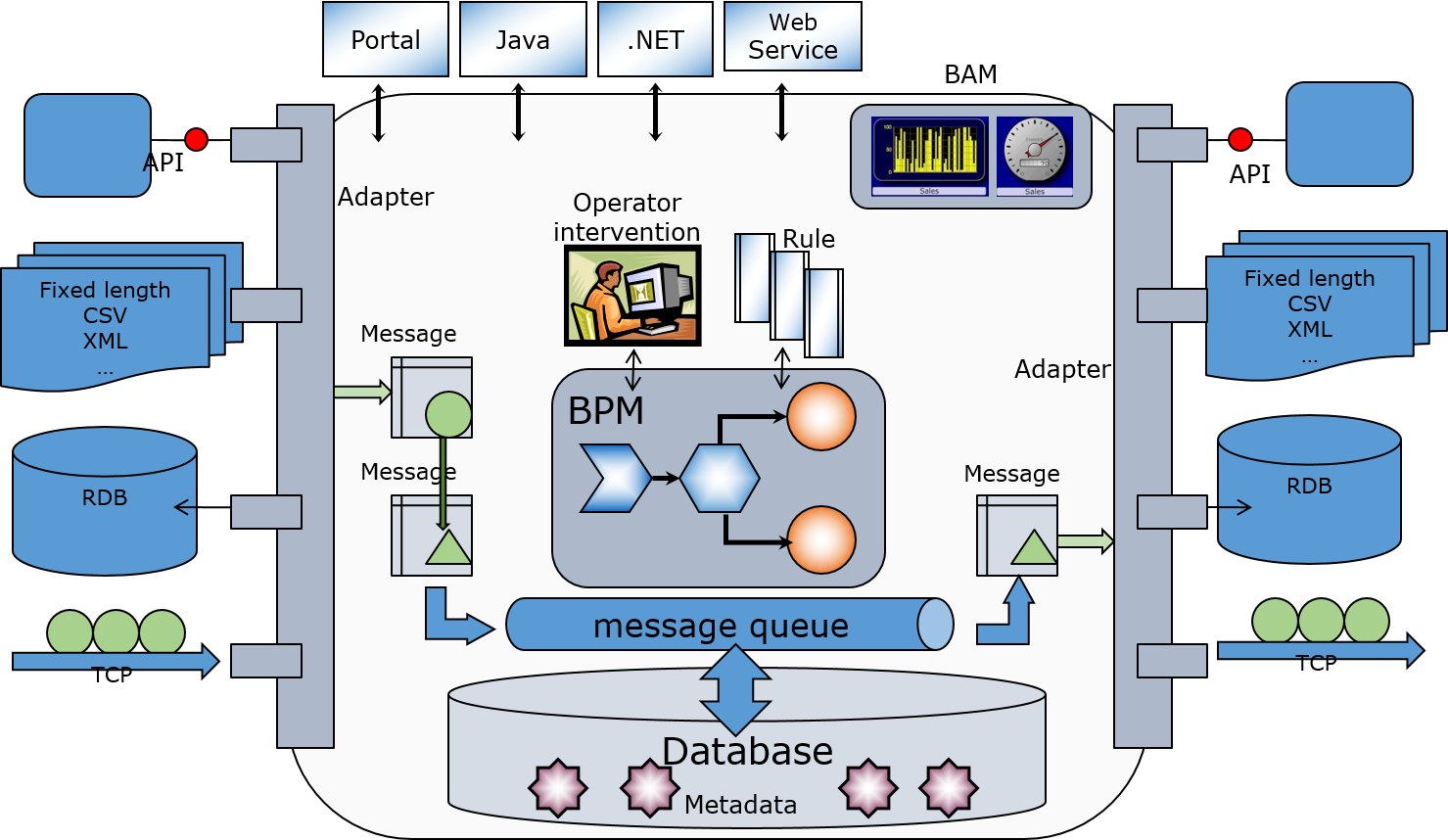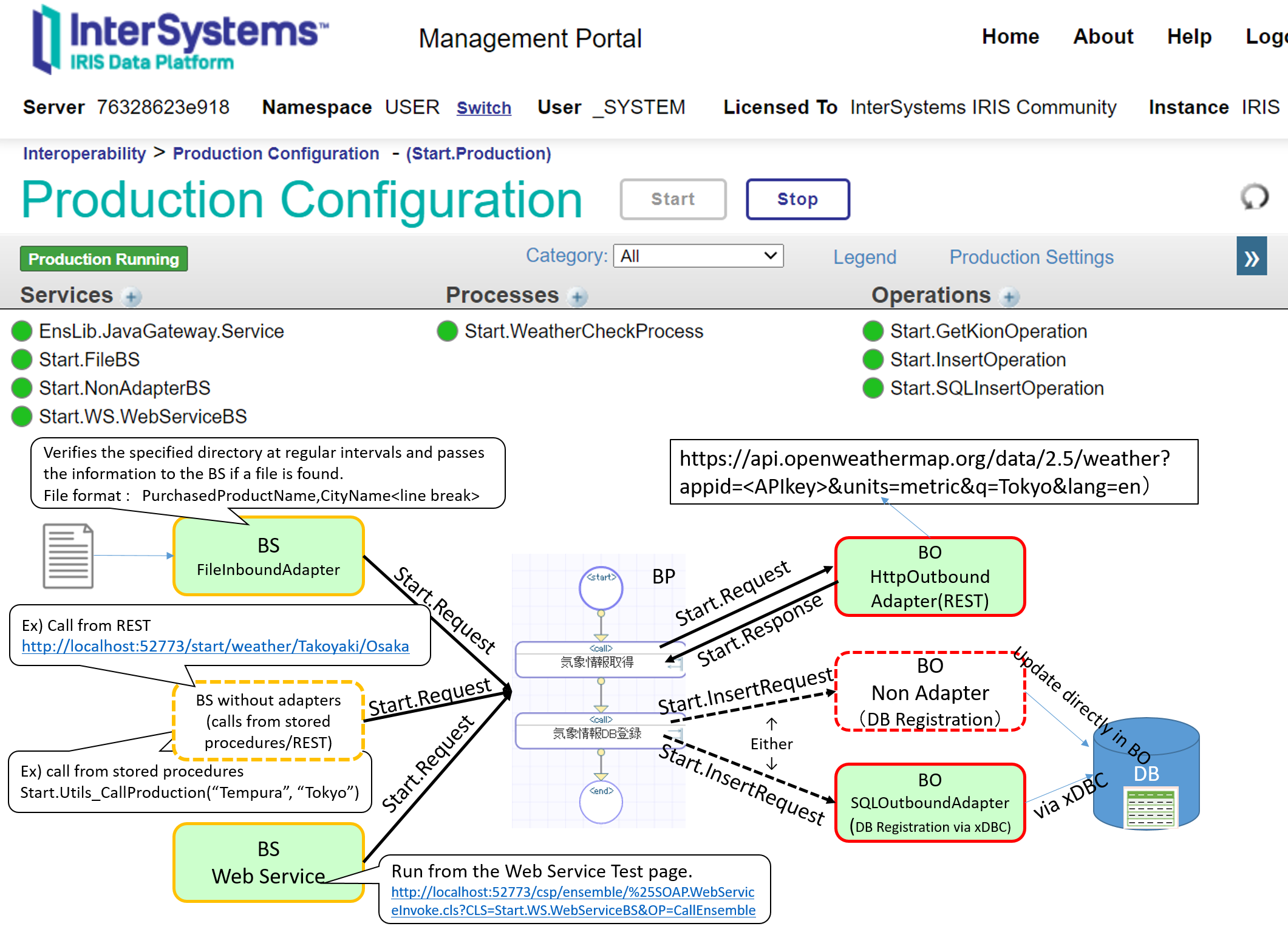Hey developers,
We want to hear from you! Give us your feedback on the InterSystems Grand Prix Contest! Please answer some questions to help us improve our contests.
👉🏼 Quick survey: InterSystems Grand Prix Contest Survey
Hey developers,
We want to hear from you! Give us your feedback on the InterSystems Grand Prix Contest! Please answer some questions to help us improve our contests.
👉🏼 Quick survey: InterSystems Grand Prix Contest Survey
i have a problem with CSP files, i can create a CSP file with termination ".csp" or ".CSP" and this configuration is case sensitive, but a CLS file, this configuration is not case sensitive. there is a way i can change this to the CSP file don't be case sensitive?
First of all thank you for your time in reading this question and writing a response,
We would need some help,
What is the best method for save a %CSP.BinaryStream to a file?
Thank you in advance!!
Hi Developers!
This is a release of how did we improve the Developer Community in February 2021. The key features:
See the details below.
Hi Developers,
We hope that you enjoy participating in our Global Masters Advocate Hub and have fun completing our exciting challenges. ![]()
And now it's time to announce the Winners for February 2021! Please welcome our awesome Global Masters Heroes!
The storm of applause goes to these developers and their great contribution to DC in February 2021:
🥇 @YURI MARX GOMES, Software Architect, YM Services, Brazil
🥈 @Robert Cemper, ex Senior Sales Engineer from InterSystems, Germany
🥉 @Oliver Wilms, Integration Engineer, Take2 Consulting, USA

Learn more about the competition and our awesome winners below.
Hi Community!
We want to invite you to join the InterSystems Gamification Platform called Global Masters Advocate Hub!
The Global Masters Advocacy Hub is our customer engagement platform where you will be invited to have some fun completing entertaining challenges, earning badges for the contribution to Developer Community, communicating with other advocates, and accumulating points which you can redeem for a variety of rewards and special honors.

Hi Developers,
For the first time, we announce the winners of our monthly Global Masters competition here, on the Developer Community! Please welcome our awesome January 2021 Global Masters Heroes!
The storm of applause goes to these developers and their great contribution to DC in January 2021:
🥇 @Yuri Marx, YM Services, Brazil
🥈 @Sergey Mikhailenko, AO Mosvodokanal, Russia
🥉 @Yone Moreno, Everis, Spain

Learn more about the competition and our awesome winners below.
Bulid REST API application built with ObjectScript in InterSystems IRIS. It also has OPEN API spec, can be developed with Docker and VSCode, can be deployed as ZPM module. can be used as Overbooking System data REST api.
What's Hotel Overbooking Management System?
The overbooking management system combines the unique conditions of the hotel, such as room prices, order channels, customer needs (etc.).
I have a quick question regarding swizzled objects.
I have an original object, say Object a, I am working with.
I set a property a.something.somethingother.somethingelse.myNewProperty to some value x.
Then at some point I am saving a and continuing to work with it. I assume here by saving a, I saved myNewProperty as well. (as it should work)
At some point I would like to make certain that I have correct value in my myNewProperty, so since I happen to know it's ID I
open it directly:
Set ref=##class(somethingelse).%OpenId(Id)
but when I try to look at my ref.
Hi,
When I'm using Cache Studio and save and compile some .cls file, it automatically generates the .xml file:

How can I have the same behavior in Vscode, when I use the export command:

This are my Vscode configs:

any help will be most welcome
thank you
Hi!
I am making a request to an API and JSON is coming as follows:
SET %httprequest = ##class(%Net.HttpRequest).%New()
DO %httprequest.Get(URL)
SET %responseBody = %httprequest.HttpResponse.Data.Read()
W %responseBody
{produto:"CHP0001",Local:{IDMV: "000000001",LOTE: "",DtFabric: "null",DtVenc: "null",Atributo06: "0000000002",Atributo07: "",QtdeDisp: "10.00000",QtdeAloc: "0.00000",QtdeSep: "0.00000",QtdeTotal: "10.
I'm participating in the Developing with InterSystems Objects and SQL with Joel Solon. The course is very nice and I will share with you some tips I got during the training. Tips presented in the day 4:
Congrats for women.
"I was born in rough times. I accepted contradictions, struggles and stones as lessons in life and I use them. I learned to live". (Cora Coralina, Brazilian poet)

@José Pereira and I created a good project, and we want to introduce a few words about this project to you.
IRIS RAD Studio is our idea of a low-code solution to show what's possible, to make the developer's life easier.
What do you think If I will say you, that very soon you will be able to connect to IRIS from the application written in Rust.
Rust is a multi-paradigm programming language designed for performance and safety, especially safe concurrency. Rust is syntactically similar to C++, but can guarantee memory safety by using a borrow checker to validate references. Rust achieves memory safety without garbage collection, and reference counting is optional. (c) Wikipedia
Most loved language for the last five years by the time of StackOverflow survey 2020.
Migration from Caché to IRIS can be quite a challenge if your code is grown over many years
and probably not so clean structured as you may like it. So you face the need to check your
migrated code against some reference data. A few samples might not be a problem,
but some hundred GB of data for testing might be.
A possible step could be to have your fresh code in IRIS but leave your huge datastore on Caché and connect both environments over ECP. I have created a demo project that gives you the opportunity to try this based on 2 Docker images with IRIS and with Caché connected over ECP.
Hey Developers,
This week is a voting week for the InterSystems Grand Prix Contest! So, it's time to give your vote to the best solutions built with InterSystems IRIS.
🔥 You decide: VOTING IS HERE 🔥
How to vote and what's new?
I can't find a case of spark or Kafka connecting to InterSystems Iris on the Internet. Are there any related resources can share?
Hi Developers!
Thank you for using ZPM Package Manager and contributing more and more useful packages to the public registry!
But as you already aware ZPM packages are always deployed with source code.
Do you think we need to add the option to deploy without source code - e.g. if you want to deploy a commercial package?
Will you develop commercial modules if there will be an option and deploy it with ZPM?
How do you deploy commercial applications today?
Hi all,
I'm trying to access via JDBC my community installation but the connection is always rejected. The same code (python code) using the stand-alone version of Intersystems IRIS works fine.
Is the community edition limited in this case? I can't see it in the official documentation: https://irisdocs.intersystems.com/irislatest/csp/docbook/DocBook.UI.Pag…
Why when I use a SQL on the Cache, the condition between "the expression" and "the expression", not permite to me, delete the all ID of this data class?
What are the differences between Cache for Windows and Cache for MacOS?
I want to use it in different devices.
what is The difference between the merge of sas and the full join of sql?
Organizations around the world lose an estimated five percent of their annual revenues to fraud, according to a survey of Certified Fraud Examiners (CFEs) who investigated cases between January 2010 and December 2011. Applied to the estimated 2011 Gross World Product, this figure translates to a potential total fraud loss of more than $3.5 trillion (source: https://www.acfe.com/press-release.aspx?id=4294973129).
Can InterSystems IRIS support horizontal expansion? How many nodes can it support?
InterSystems has been widely used in medical and health fields. Which other industries have high market share?
What's the difference between InterSystems Trakcare and InterSystems Healthshare?
This article is a continuation of this post.
The purpose of this article is to explain how the Interoperability menu works for system integration.

The left side of the figure is the window for accepting information sent from external systems.
There are various ways to receive information, such as monitoring the specified directory at regular intervals to read files, periodically querying the database, waiting for input, or directly calling and having it passed from applications in other systems.
This article is a continuation of this post.
In the previous article, how the Interoperability menu works for system integration was explained.
In this article, I would like to explain how to develop a system integration using the Interoperability menu.
To begin with, what kind of process do you want to create? While thinking about this, make the following content.
This article is a follow-up to this post.
In the previous article, [What is a Production?], we checked the production contents. We ran the sample code and checked the flowing messages' contents into the production on the Visual Trace page.
This article will review the concept and the definition of the messages used to send and receive data between components from the required development content for system integration.
Before creating a message, let's review the case study.
This article is a continuation of this post.
In the previous article, we reviewed how to create and define messages used to send and receive data between components.
In this article, I will explain how to create a business operation from the component creation methods.
We will quickly check the code by referring to the sample.。

| Component Name | Role |
|---|---|
| Start.FileBS | A business service that uses file inbound adapter to read files placed in a specified directory at regular |